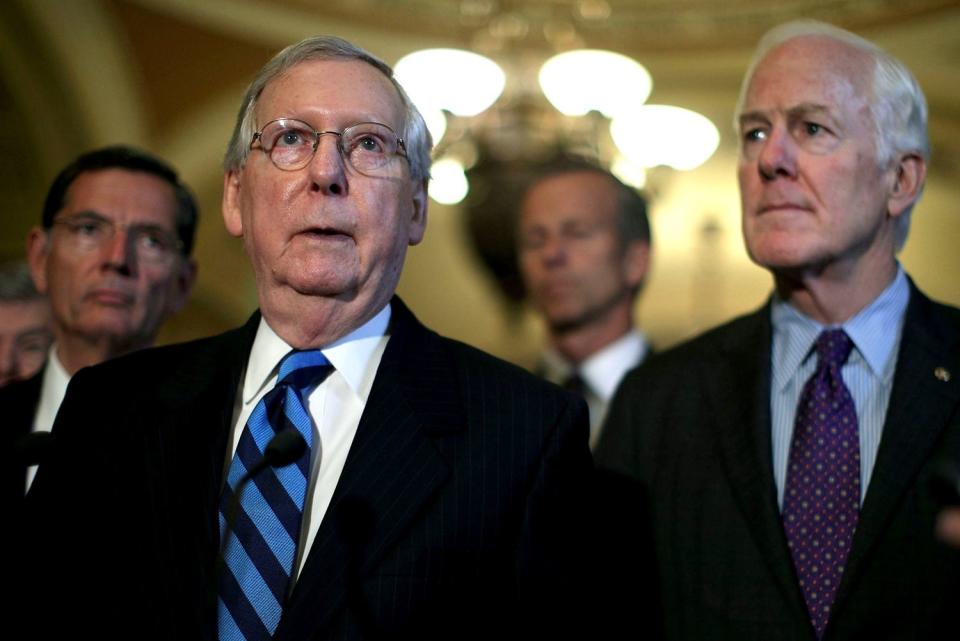Democrats Maintain Control of Senate, Fending Off Strong Republican Challengers in Several Battleground Races

The Democratic Party has defended its Senate majority, securing control of Congress' upper chamber for at least two more years.
Though Republicans have long been expected to regain a majority in the House of Representatives this year, control of the Senate looked like it could swing either way, with Republicans appearing to have the slight advantage going into election night.
On Saturday, Nevada Sen. Catherine Cortez Masto — widely considered the most vulnerable Democratic senator on the ballot — won her reelection bid, handing the Democratic Party its 50th seat in the Senate and eliminating Republicans' only remaining path to the majority.
RELATED: Why Did Polls Prepare Us for a Red Wave? Experts Weigh In on the Surprising Midterm Election Results

Photo by Alex Wong/Getty Images Sen. Mitch McConnell
If Democratic Sen. Raphael Warnock of Georgia wins reelection in the runoff election against Republican Herschel Walker next month, the Democratic Party will enter the next legislative session with one more Senate seat than they currently have — an astonishing feat for the party of the president during a midterm year.
If Walker successfully unseats Warnock, Democrats and Republicans will split the Senate 50-50, like it is now, with Vice President Kamala Harris serving as the tiebreaker that gives Democrats a technical majority.

Drew Angerer/Getty Images Chuck Schumer, leader of the Senate Democratic Caucus
Before the incoming senators convene in January, both major parties will caucus separately and elect their partisan Senate leader.
Majority Leader Chuck Schumer, who has led the Senate Democratic Caucus since 2017, will likely continue in his role.
Minority Leader Mitch McConnell, who has led the Senate Republican Conference since 2007, is also likely to secure another two-year term at the helm of the GOP caucus — unless the party sides with Florida Sen. Rick Scott, who is rumored to be eyeing the position and has already received the endorsement of former President Donald Trump.
Never miss a story — sign up for PEOPLE's free daily newsletter to stay up-to-date on the best of what PEOPLE has to offer.

